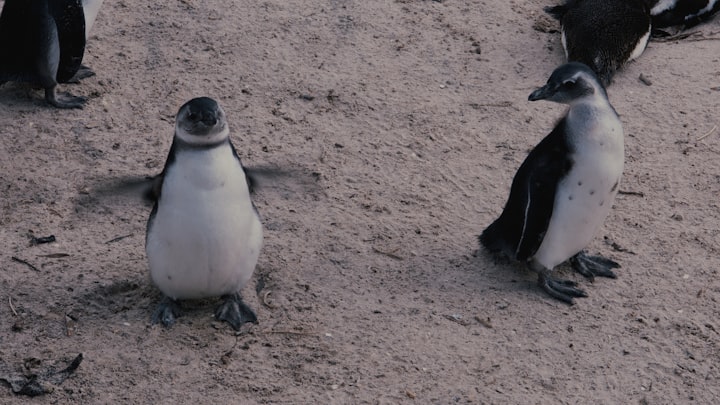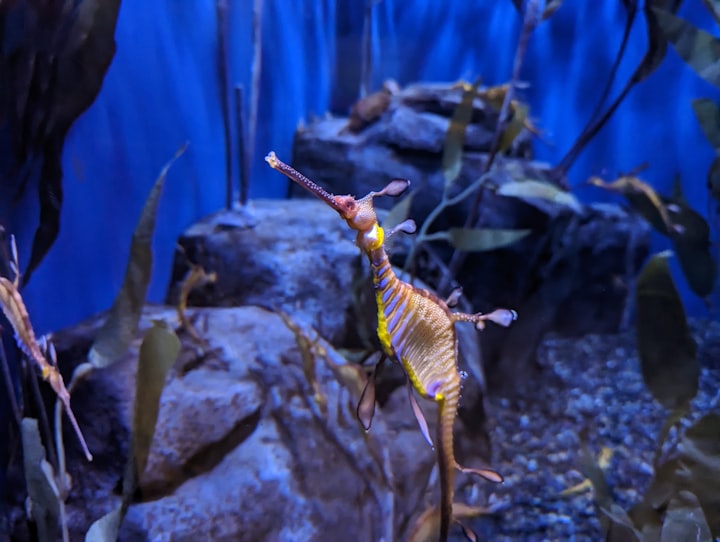Surprise! New England Aquarium Has a Brand New Penguin Chick!
The New England Aquarium welcomed a healthy female African penguin chick, the first for the aquarium since 2019.

On March 23rd, 2023, Boston’s New England Aquarium welcomed its first African penguin chick since 2019. The female chick, named “Bray” for the donkey-like vocalizations African penguins are known for, made her public debut at the Aquarium’s signature penguin habitat on June 21st, 2023 after spending three months behind the scenes with the staff who helped raise her. She can be recognized by her green and brown ID bracelet on her right wing and the gray feathers she will keep until she’s a year and a half old.
Bray’s Beginnings Behind the Scenes
After a four-year break from breeding African penguins under their care, the New England Aquarium decided it was time to allow the endangered birds to resume breeding, hoping to add a chick or two to their penguin colony. Before long, Malgas II and Demersus III, one of the Aquarium’s penguin breeding pairs, produced an egg in February that would hatch on March 23rd. The pair has previously had one chick together while Malgas II has two chicks with a previous mate.
When she first hatched, Bray was cared for by her parents, just as they would out in the wild. However, as she continued to grow, the Aquarium’s animal care trainers began teaching her to be hand fed by the Animal Care team so that she would be ready to join the rest of her colony on exhibit. They also monitored her and watched the downy chick feathers she was born with all fall off to reveal her first set of waterproof feathers. They even stayed close to her as she learned how safely swim with her new feathers.
As she continued to thrive where she could now go on exhibit, the Animal Care team made several preparations for moving her to her family. First, she was given a physical health exam to determine that she was healthy enough to go on exhibit to join her family. Then, she was given a blood test that confirmed her gender. She was then, given her green and brown bracelet to help the team identify her as she continues to lose her next set of feathers that make way for her adult feathers.
Bray on Display
Once Bray moved into the penguin habitat, she joined the colony that includes her parents, and many other relatives, such as her 41-year-old great-grandmother Deco, the Aquarium’s oldest penguin. In the wild, African penguins can normally live for 10-15 years while they’ve lived 25 or more in human care.
Any More Chicks Along The Way?
While this year’s breeding season had three potential breeding parents, only Malgas II and Demersus III’s first egg, which resulted in Bray, was successfully hatched. As of this writing, the African penguin breeding season is over while the breeding season for the Aquarium’s Southern Rockhopper penguins has just started. Unlike the African penguin parents, who nest and care for their eggs and chicks off exhibit, this is the opposite for their rockhoppers, who do so on exhibit. The Aquarium is now hoping to welcome some Rockhopper chicks pretty soon.
Why Does the Aquarium Breed Penguins?
As part of the African Penguin Species Survival Plan, the New England Aquarium works and partners with other Association of Zoos and Aquariums (AZA)-accredited zoos and aquariums to promote a healthy and sustainable population of African penguins in human care. Like any modern zoological facility, they carefully select and breed penguin pairs to increase the likelihood of success and help promote the genetic diversity of this endangered bird.
Why are African Penguins Endangered?
African Penguins are endangered, because of overfishing, oil spills, and climate change, which has caused the global population to decline by 97%. Without close attention and heroic efforts by individual people and organizations like the Aquarium, African penguins could go extinct by 2035.
About the Creator
Jenna Deedy
Zoo and Aquarium Professional, Educator, Cosplayer, Writer and B.A. in Psychology whose got a lot to share when it comes to animals, zoos, aquariums, conservation, and more.
Instagram: @jennacostadeedy






Comments
There are no comments for this story
Be the first to respond and start the conversation.